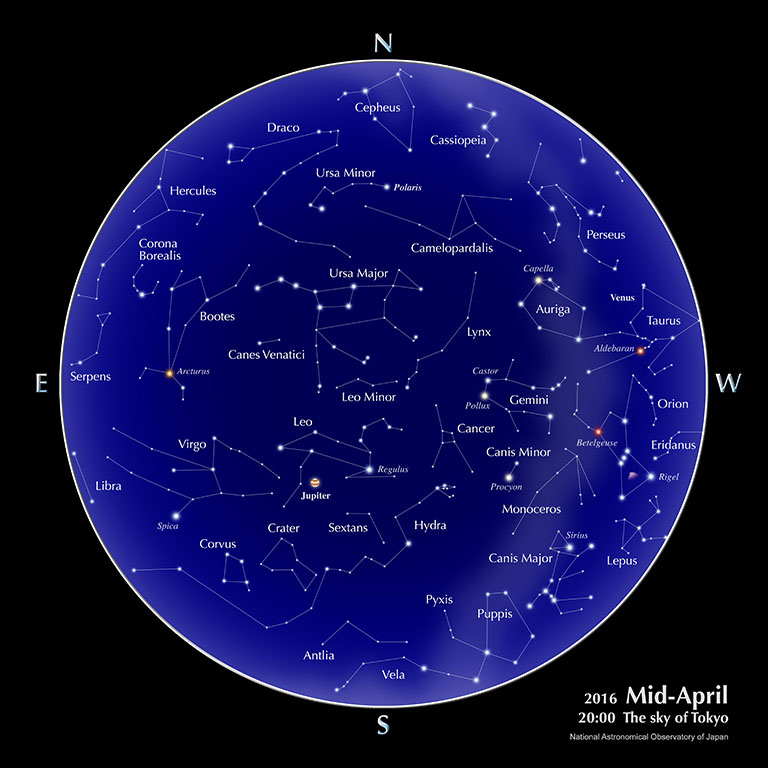Astronomical Information | 2016 | April
The sky of Tokyo

Calendar (April)
| 1 | Last Quarter Moon |
| 7 | New Moon |
| 10 | Uranus at conjunction |
| 14 | First Quarter Moon |
| 17 | Mars at stationary point |
| 18 | Greatest Eastern Elongation of Mercury |
| 22 | Full Moon/ Lyrid Meteor Shower peaks around this time (The best visibility is before dawn on the 22nd. About 2 meteors per hour are expected. Because the Moon is very bright, conditions are bad.) |
| 29 | Mercury at stationary point/ Showa Day [Showa-no-hi] (national holiday) |
| 30 | Last Quarter Moon |
The days for the peak activities of the meteor showers are based on the predictions of IMO (International Meteor Organization).
Planets
- Mercury
- Mercury reaches its greatest eastern elongation on the 18th. From the 10th to the 26th, its elevation at 30 minutes after sunset is more than 10 degrees. During this period, its brightness is -0.8 magnitude to 1.6 magnitude.
- Venus
- Venus is located low in the eastern sky before sunrise, but its apparent location is close to the Sun, so it is not suited for observations.
- Mars
- Mars moves from the constellation Scorpio to the constellation Ophiuchus. It can be seen in the south-eastern sky around midnight. Its brightness is -0.5 magnitude to -1.4 magnitude.
- Jupiter
- Located in the constellation Leo, Jupiter can be seen in the south-eastern to southern sky after sunset. Its brightness is -2.4 magnitude to -2.3 magnitude.
- Saturn
- Located in the constellation Ophiuchus, Saturn can be seen in the south-eastern sky around midnight. Its brightness is 0.3 magnitude to 0.2 magnitude.
Source: Ephemeris Computation Office, NAOJ
With the “Sky Viewer” you can easily explore the appearance of a typical urban night sky (planets and constellations are visible).The Celestial Phenomena section of the glossary explains the planetary phenomena terms: greatest elongation, opposition, conjunction, stationary, etc.